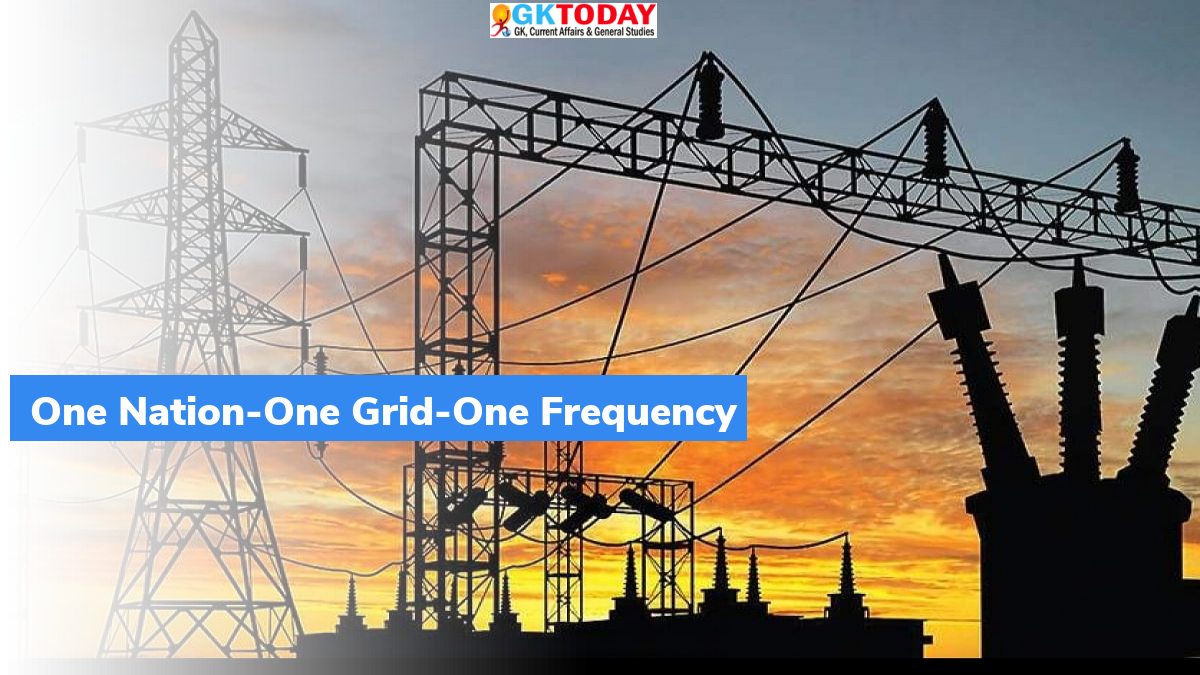One Nation-One Grid-One Frequency
PowerGrid Corporation Limited celebrated the anniversary of the achievement of “One Nation One Grid”, as a part of Azadi Ka Amrit Mahotsav.
Highlights
On this occasion, Free health check-up and medical camps were organised across 70 locations.
History of National Grid in India
- In India, Grid management started in sixties on regional basis. Initially, grids were inter-connected to form regional grid. Following this, India was divided into 5 regions on the basis of grid-
- Northern Grid
- Eastern Grid
- Western Grid
- North Eastern Grid and
- Southern region.
- The North Eastern and Eastern Grid were connected in October 1991.
- Western Grid and North Eastern Grid were interconnected in March 2003.
- In 2006, North and East grids were interconnected.
- Thus, 4 regional grids Northern, Eastern, Western and North Eastern grids were inter-connected to form a central grid operating at one frequency.
- Southern Region was connected to Central Grid in 2013, with the commissioning of 765kV Raichur-Solapur Transmission line.
- With this, ‘ONE NATION’-‘ONE GRID’-‘ONE FREQUENCY’ objective was achieved.
Total Transmission Capacity
Currently, India has a total inter-regional transmission capacity of about 1,12,250 MW. It is likely to enhance to about 1,18,740 MW by 2022.
Significance of Synchronisation
Synchronisation of all regional grids will help in utilizing the natural resources optimally, by transferring Power from Resource centric regions to Load centric regions. It will also lead to the establishment of vibrant Electricity market facilitating trading of power in India.
Power Grid Corporation of India Limited
Power Grid is an Indian statutory corporation, working under the parent head of Ministry of Power. It is headquartered in Gurugram. The organisation engages mainly in transmission of bulk power across India. Power Grid transmits around 50% of the total power generated in India.
Month: Current Affairs - January, 2022
Category: Economy & Banking Current Affairs


